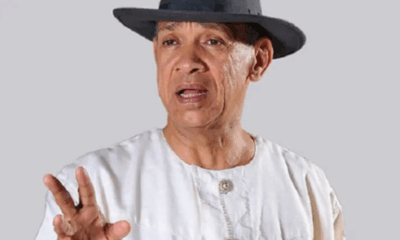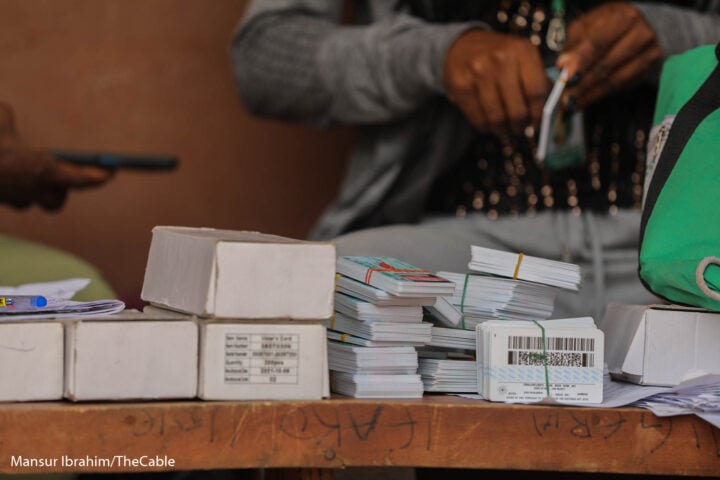The national assembly is considering major amendments to the Electoral Act 2022 ahead of the 2027 general election, with proposals that could transform how Nigerians vote.
The suggested changes include compulsory electronic voting, mandatory electronic transmission of results, early voting for security and essential workers, and the option to replace the permanent voter card (PVC) with other forms of identification such as the national identification number (NIN) or international passport.
These proposals were presented during a public hearing organised by the joint committee on electoral matters on Monday. Lawmakers are also proposing that the 2027 general elections be moved to November 2026 — six months before the May 29 handover date — to ensure that all election petitions are resolved before inauguration.
According to legislators, the goal of the reform is to modernise Nigeria’s electoral process, enhance transparency, and eliminate irregularities that have long undermined public confidence in elections.
PVC may no longer be compulsory
The amendment seeks to revise Sections 18 and 47 of the current law to make the use of PVCs optional. The proposed change argues that the Bimodal Voter Accreditation System (BVAS) does not utilise the microchip embedded in the PVC, and therefore the card should not remain the only recognised form of voter identification.
“The use of Permanent Voter Card (PVC) will not be compulsory, since the Bimodal Voter Accreditation System (BVAS) does not recognise the microchip in the PVC,” the document reads.
“Every registered voter will be able to download and print their voter’s card whenever needed. This totally eradicates the issue of buying and selling PVCs, likewise all related offences.”
Under the new proposal, eligible identification for voters will include the National Identification Number (NIN), international passport, or birth certificate.
BVAS, PVC challenges
Since its introduction, the BVAS system has faced issues such as biometric authentication failures, weak battery capacity, and poor internet connectivity — particularly in rural areas.
The 2023 general elections were characterised by complaints over delayed result uploads to the INEC Result Viewing Portal (IReV) and widespread disenfranchisement due to missing PVCs or malfunctioning devices.
Opposition parties and observers also accused the electoral umpire of result manipulation, pointing to discrepancies between results announced at polling units and those uploaded online.
Push for electronic transmission of results
To address these concerns, lawmakers are proposing to amend Section 60(5) of the Electoral Act to make electronic transmission of results mandatory.
“The presiding officer shall transmit the results, including the total number of accredited voters, to the next level of collation both electronically and manually,” the amendment states.
Proponents believe this reform will strengthen transparency and minimise post-election disputes.
Akin Akingbolu, who represented Yiaga Africa on behalf of civil society organisations, urged lawmakers to extend the provision to include compulsory electronic voting.
“Strengthening the Electoral Act to make electronic transmission of results mandatory, including the upload of polling unit-level results and results sheets, will deepen the credibility of electoral outcomes and ensure votes count,” he said.
Early voting for essential workers
A new clause under Section 2 of the bill introduces early voting for specific categories of voters — including security operatives, INEC officials, accredited observers, journalists, and ad hoc staff — who are typically deployed on election duty.
These groups will be allowed to vote up to 14 days before the main election day to ensure they are not disenfranchised while performing official responsibilities.
Stiffer penalties for electoral offences
The bill also proposes stricter punishment for electoral misconduct, recommending a one-year jail term or a fine of ₦1 million — or both — for any presiding or collation officer who issues unstamped or unsigned ballot papers or result sheets.
“A presiding officer or collation officer who distributes or causes to be distributed any ballot paper or results sheet not duly stamped and signed commits an offence liable on conviction to imprisonment for a term of not less than one year or to a fine not less than ₦1,000,000 or both,” the amendment reads.
A comprehensive electoral overhaul
The proposals are part of the Electoral Act 2022 (Repeal and Enactment) Bill, 2025 (SB. 903), which seeks to repeal and replace the existing law.
It also introduces provisions for diaspora voting, the creation of an Electoral Offences Commission, and enhanced independence for the Independent National Electoral Commission (INEC).
Lawmakers say the overall aim is to rebuild public trust, modernise the electoral process, and ensure that every vote counts in future elections.
Earlier this month, Enyinnaya Abaribe, senator representing Abia South, noted that Nigeria’s judiciary had failed to keep pace with the technological advancements introduced by the electoral commission.
Abaribe argued that the challenge with Nigeria’s elections lies not in technology, but in the interpretation of laws by the courts.

 BIG STORY1 day ago
BIG STORY1 day ago
 BIG STORY12 hours ago
BIG STORY12 hours ago
 BIG STORY3 days ago
BIG STORY3 days ago
 BIG STORY6 hours ago
BIG STORY6 hours ago
 BIG STORY1 day ago
BIG STORY1 day ago
 BIG STORY5 days ago
BIG STORY5 days ago
 BIG STORY3 days ago
BIG STORY3 days ago
 BIG STORY2 days ago
BIG STORY2 days ago





















